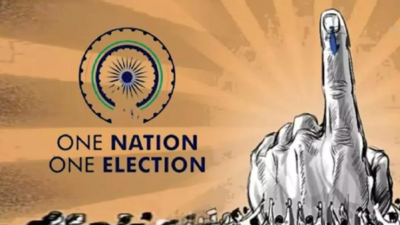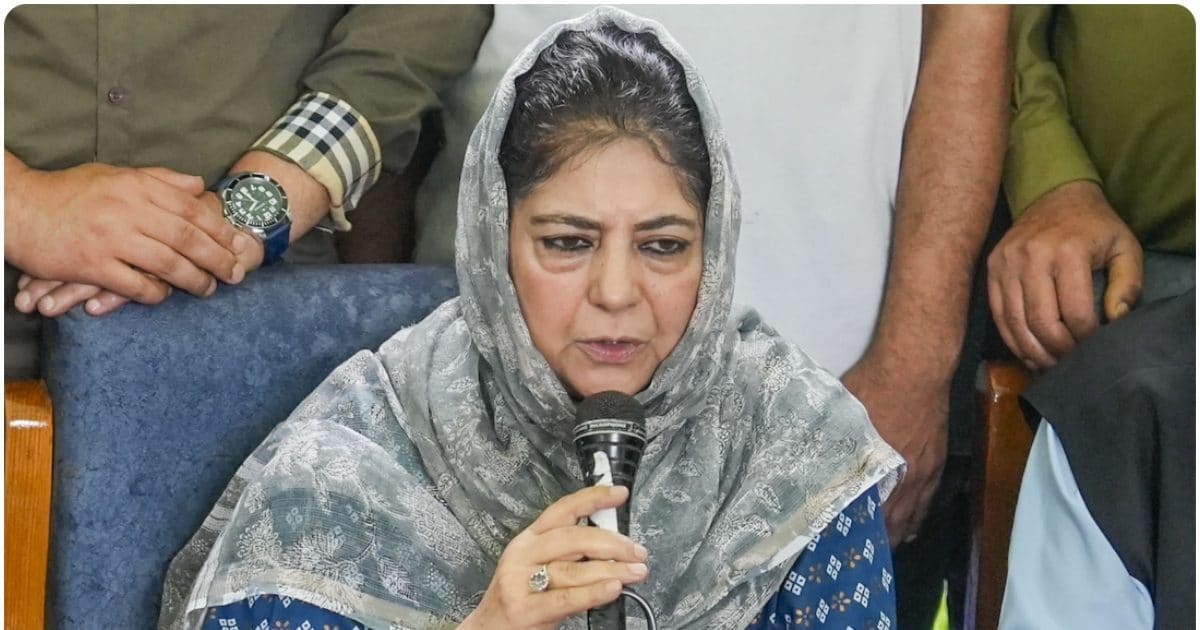NEW DELHI: A parliamentary panel’s first meeting to examine two bills on simultaneous polls witnessed intense discussions, with opposition members viewing it as an assault on constitutional principles and federalism, while the BJP MPs hailing it as reflective of popular opinion.
During the meeting, the opposition MPs, including Priyanka Gandhi Vadra, challenged the cost-saving argument for simultaneous polls. They sought expenditure estimates post the 2004 Lok Sabha elections when EVMs were utilised across all 543 constituencies, supposedly reducing costs, according to news agency PTI.
Meanwhile, BJP MPs, countered the charge that the ‘One Nation One Election‘ proposal flouted constitutional values by requiring an early dissolution of several state assemblies and locking their term with the Lok Sabha tenure, PTI sources said.
Sanjay Jaiswal referenced the 1957 dissolution of seven state assemblies, questioning if leaders like then-president Rajendra Prasad had breached constitutional norms.
BJP MP VD Sharma highlighted public support for concurrent elections, citing the Ram Nath Kovind-led committee’s consultation with over 25,000 citizens. BJP members emphasised that frequent elections impede national progress and drain resources.
Shrikant Shinde of Shiv Sena discussed Maharashtra’s situation, where consecutive Lok Sabha, assembly, and local body elections disrupt administrative functions.
Opposition members from Congress, DMK and TMC maintained their stance against the proposed laws, viewing them as unconstitutional. A TMC representative prioritised democratic rights over financial savings.
Some opposition MPs requested a one-year tenure for the Joint Committee, led by PP Chaudhary, given the task’s magnitude.
YSR Congress’s V Vijayasai Reddy expressed concerns about regional parties’ marginalisation and advocated replacing EVMs with ballot papers, citing manipulation risks.
JD(U)’s Sanjay Jha countered the ballot paper suggestion by referencing Bihar’s booth-capturing incidents, whilst raising questions about short-term governments’ effectiveness.
The bills propose that mid-term elected bodies serve only the remaining term of their predecessors.
Committee members received comprehensive documentation, including the Kovind committee report in Hindi and English, with 21 volumes of annexures.
The Constitution (129th Amendment) Bill and Union Territories Laws (Amendment) Bill, introduced in the Lok Sabha’s Winter Session, are under committee review.
The committee’s expansion from 31 to 39 members accommodated additional political parties’ participation.
The committee members include former ministers Anurag Thakur, Parshottam Rupala, Manish Tewari, and other prominent lawmakers.
The committee comprises 27 Lok Sabha and 12 Rajya Sabha members.




